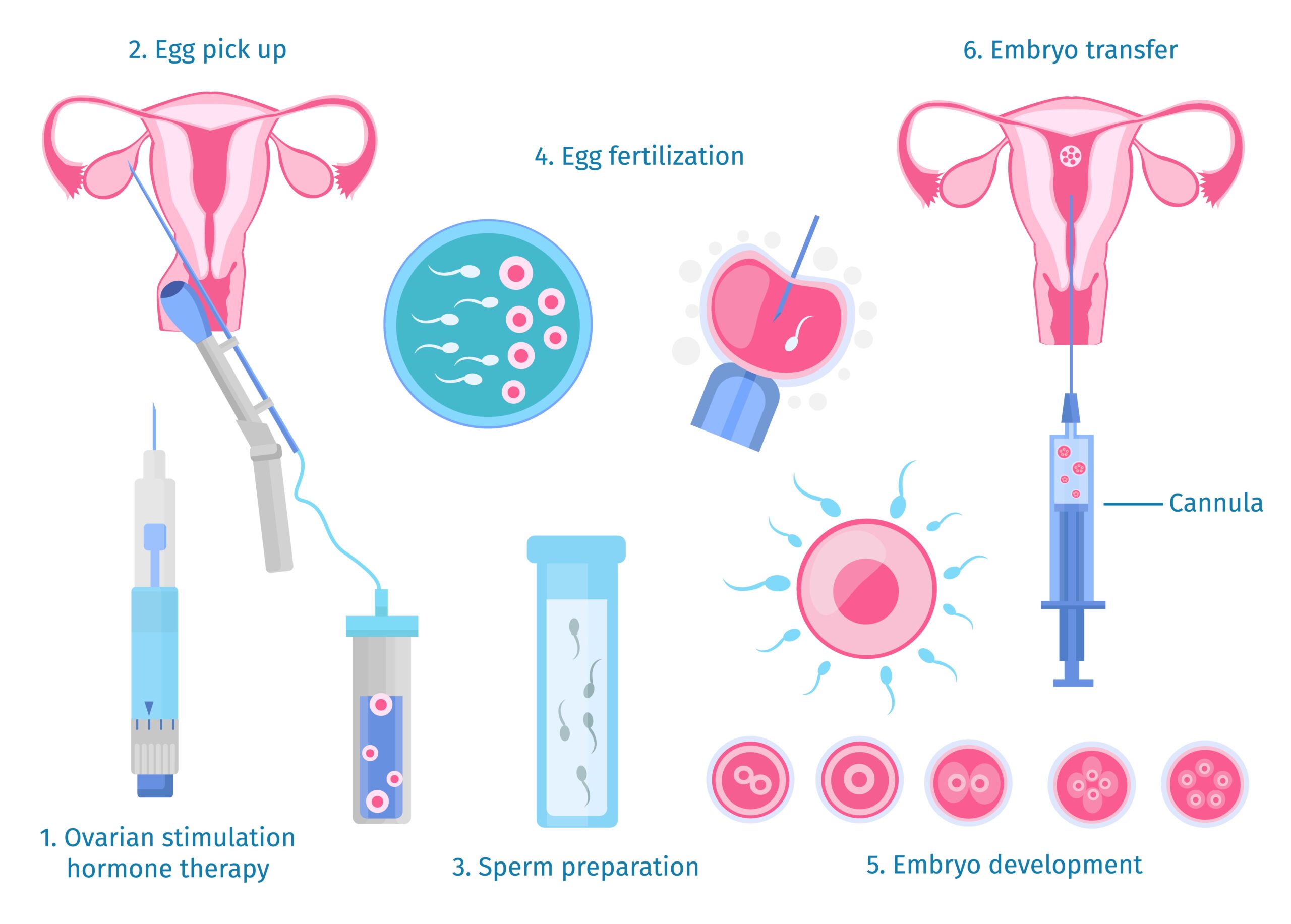
If you and your partner have been trying to conceive for a while without success, chances are you’ve heard your doctor mention IUI (Intrauterine Insemination) or IVF (In-Vitro Fertilization). Both are well-known fertility treatments, but the big question couples often ask is: “Which one is better for us, IVF or IUI?”
The truth is, there isn’t a one-size-fits-all answer. Each treatment works differently, has its own success rates, costs, and ideal candidates. Let’s break it down and engagingly so you can understand the differences and make a more informed decision with your doctor.
First Things First: What Exactly Are IUI and IVF?
- IUI (Intrauterine Insemination)
Think of IUI as a “gentle nudge” in the right direction. In this process, the doctor takes washed and prepared sperm and directly places it inside the uterus around the time of ovulation. This helps the sperm get closer to the egg, increasing the chances of fertilization. - IVF (In-Vitro Fertilization)
IVF is more advanced. Here, eggs are collected from the ovaries, fertilized with sperm in a lab, and the resulting embryo(s) are placed back into the uterus. It bypasses several natural steps, making it more controlled and effective for complex infertility issues.
Success Rates: Which Works Better?
- IUI: Success rates vary widely but typically range between 10 and 20% per cycle (depending on age, fertility issues, and sperm health). It usually takes multiple cycles to achieve pregnancy.
- IVF: Success rates are higher, around 40–60% per cycle for women under 35, though this declines with age. For many couples, IVF provides the best chance at pregnancy, especially after other methods fail.
Bottom line: IVF generally has higher success rates than IUI, but it’s also more invasive and expensive.
Who Should Try IUI First?
IUI is often recommended as the first step for couples with:
- Mild male factor infertility (low sperm count or motility, but not severe).
- Unexplained infertility (when all tests are normal, but pregnancy still isn’t happening).
- Cervical mucus problems (where the sperm can’t pass easily through the cervix).
- Couples where the woman is younger (usually under 35) and has good ovarian reserve.
Since it’s less invasive and more affordable, doctors often suggest trying IUI for a few cycles before moving to IVF.
Who Benefits More from IVF?
IVF is usually advised if:
- The woman has blocked or damaged fallopian tubes.
- The man has severe sperm problems.
- The couple has been unsuccessful with multiple IUIs.
- The woman is older (above 35), where time is an important factor.
- There are genetic conditions that require embryo testing (PGT).
In such cases, choosing IVF from the start helps avoid delays and improves the likelihood of achieving pregnancy.
Cost Factor: IUI vs IVF in India
Money plays a big role when planning fertility treatments, especially in India.
- IUI: Much more affordable, typically between ₹8,000–₹25,000 per cycle, depending on the city and medication used.
- IVF: More expensive, ranging from ₹1.5 lakh–₹3 lakh per cycle in most Indian cities, with costs going up if advanced techniques like ICSI, donor eggs, or embryo freezing are involved.
Many couples try IUI first because of the lower cost. However, if time or age is against you, IVF might actually be more cost-effective in the long run since it has better success rates per attempt.
The Emotional Side of IUI vs IVF
Fertility treatments aren’t just about money and science, they come with an emotional journey.
- IUI: Less stressful physically and emotionally. It’s a short procedure, and the medications are usually lighter.
- IVF: More emotionally demanding due to daily hormone injections, egg retrieval under anesthesia, and the two-week wait after embryo transfer. The higher financial investment can also add pressure.
Many couples find counseling or support groups helpful during either process.
How Do Doctors Decide?
Doctors usually consider the following before suggesting IUI or IVF:
- Age of the woman: Younger women may start with IUI, while older women often go directly to IVF.
- Duration of infertility: If you’ve been trying for several years, IVF may be suggested sooner.
- Medical history and diagnosis: Tubal issues, severe male infertility, or failed IUIs make IVF the better option.
- Budget and emotional readiness: Your comfort level with procedures and financial planning also matter.
So, Which Is Better: IVF or IUI?
Here’s the simplest way to look at it:
- IUI is better if you’re younger, have mild fertility issues, and want a less invasive, more affordable option to start with.
- IVF is better if you need higher success rates quickly, face complex fertility challenges, or have already tried IUI without success.
Take away
Choosing between IUI and IVF is not just a medical decision, it’s also emotional, financial, and deeply personal. Neither option is “better” in absolute terms; it all depends on your fertility journey, medical condition, and future plans.
The best steps forward is to have an honest conversation with your fertility specialist, understand your options clearly, and decide what aligns best with your health, budget, and timeline.
Remember, whether it’s IUI or IVF, the goal is the same – a healthy pregnancy and a growing family.
